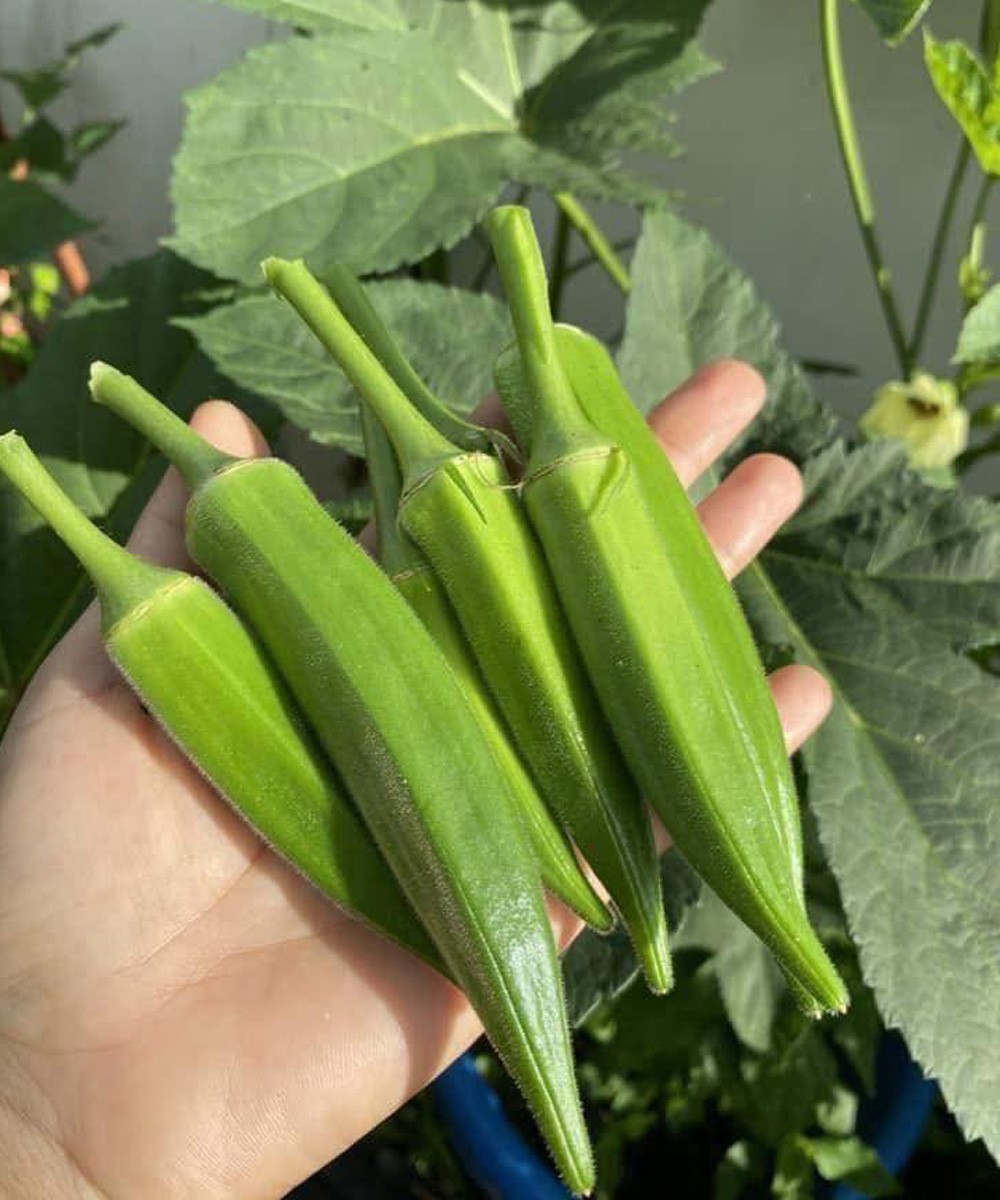3. Protect the heart, help reduce bad cholesterol
In addition to fiber, okra also contains many natural antioxidants.
Fiber helps “sweep” bad cholesterol out of the body, while antioxidants help protect blood vessel walls from aging and atherosclerosis.
Women can boil okra, mix it with soy sauce or diluted fermented bean curd to eat with white rice. Maintain a regular 2-3 meals a week to see clear effects.
4. Strengthen immunity, anti-inflammatory
Okra is a natural source of vitamin C, and also contains flavonoids – a group of strong anti-inflammatory substances.
Vitamin C helps increase the production of antibodies and immune cells, helping the body fight common infections.
5. Support healthy bones and joints
Vitamin K and folate in okra are two important micronutrients that help strengthen bones and restore connective tissue better.
Elderly people, people in menopause or with bone and joint diseases should supplement regularly to prevent osteoporosis.
In addition to okra, you should eat more small fish with bones, dark green vegetables and add light exercise every day to increase calcium absorption.
Who shouldn’t eat okra
Okra is generally safe and nutritious for most people, but some individuals should limit or avoid it due to specific health concerns or sensitivities. Here’s a breakdown:
1. People prone to kidney stones
See more on the next page
Advertisement
